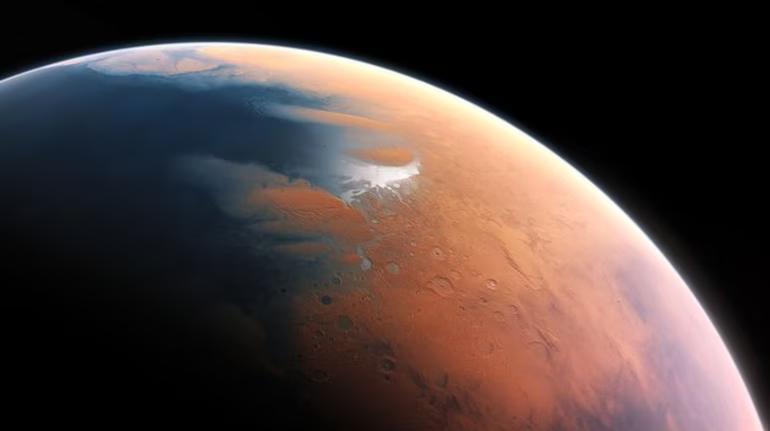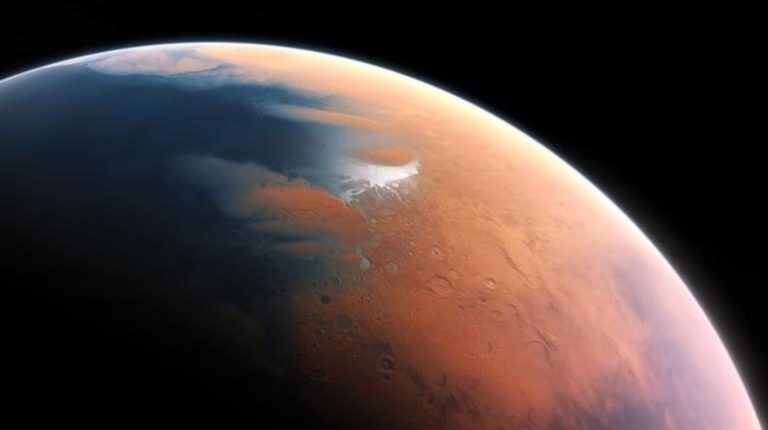
Mars may have once had rain & snowfall, finds new study
TheRed Planet, Mars, has long been a topic of fascination for scientists and space enthusiasts alike. For decades, researchers have been studying the planet, trying to uncover its secrets and understand its mysterious past. A recent study by the University of Colorado Boulder has shed new light on the Martian environment, suggesting that Mars may have once experienced rainfall and snowfall, feeding valleys and channels.
The study, published in the journal Nature Astronomy, analyzes data collected by NASA’s Mars Reconnaissance Orbiter, which has been orbiting the planet since 2006. The data shows evidence of ancient rivers, lakes, and even oceans on Mars, which is a significant discovery in the search for life beyond Earth.
According to the study, the water on Mars likely existed around 4 billion years ago, during a period known as the “Noachian era”. This era is characterized by a warm and wet climate, with temperatures ranging from 0°C to 20°C (32°F to 68°F). The water on Mars is believed to have been present in the form of liquid, rather than ice or vapor, which is a crucial factor in the search for life.
The study’s lead author, Dr. Joseph Michalski, explains that the evidence of ancient water on Mars is not new, but the new study provides a more detailed understanding of the planet’s watery past. “We’ve known for a long time that Mars had water in the past, but we didn’t know how widespread it was or how long it lasted,” Michalski said in an interview. “Our study shows that water was present on Mars for millions of years, and it’s possible that life could have emerged during that time.”
The researchers used data from the Mars Reconnaissance Orbiter’s High Resolution Imaging Science Experiment (HiRISE) camera to analyze the geology of Mars. They focused on the planet’s valleys and channels, which are believed to have been formed by flowing water. By studying the shape and size of these features, the researchers were able to reconstruct the Martian environment during the Noachian era.
The study’s findings suggest that Mars may have had a more Earth-like climate in the past, with rainfall and snowfall occurring regularly. This is a significant discovery, as it suggests that the planet may have been capable of supporting life in the past. The researchers believe that the water on Mars could have been present in the form of rivers, lakes, and oceans, which would have provided a habitable environment for life to emerge.
The study’s lead author, Dr. Michalski, suggests that the discovery of ancient water on Mars could have significant implications for the search for life beyond Earth. “If we find evidence of life on Mars, it would be a major breakthrough in the search for life beyond Earth,” Michalski said. “It would mean that life is not unique to Earth, and that it could have emerged on other planets in the solar system.”
The study’s findings are not without controversy, however. Some scientists have questioned the accuracy of the data and the methods used to analyze it. The study’s authors acknowledge that their findings are based on indirect evidence, and that more research is needed to confirm the presence of ancient water on Mars.
Despite these challenges, the study’s findings are an important step forward in our understanding of Mars and its potential for supporting life. As we continue to explore the planet and gather more data, we may uncover even more evidence of its watery past and its potential for supporting life.






